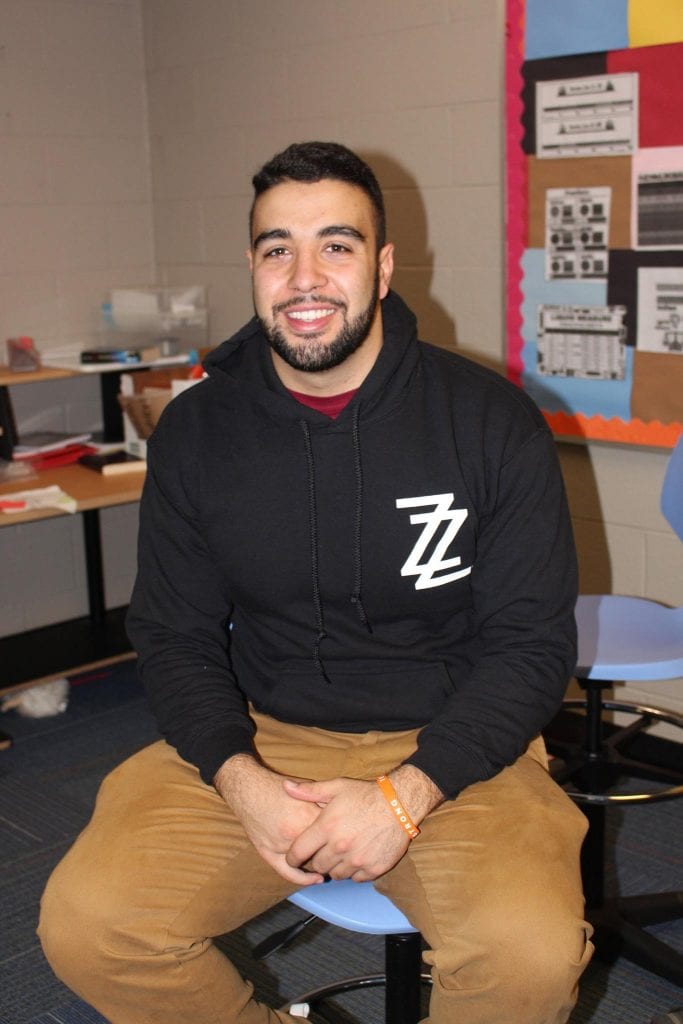Josh Yazidan Interview- Yaz Apparel 
Did you have a business plan when you started your business?
The answer is no. I had no plan. I literally started with a pillowcase and a t-shirt. Not many people start out with a business plan and I just pretty much went for it before even starting anything.
Do you think business plans are necessary for entrepreneurship?
Yes, they are. It’s more of a floor plan to where you can set goals for yourself. I think that’s more important than having a business plan of like, “This is how much we’re going to spend here, here and here” because sometimes things don’t go through and you pretty much have to go with the flow at first. When you are first starting, nothing is going to go the way you planned. Nothing has gone the way I’ve planned and it kind of sucks. But in retrospect, it was good things didn’t go the right way. So, you don’t really need a business plan. There are other things like making goals for yourself that are necessary.
What three pieces of advice can you offer developing arts entrepreneurs?
First one is whenever you have a major setback, really learn from the experience. If it is with money, learn how to really spend your money the right way. Learn how to do things right before they go wrong. Learning from your mistakes is a huge thing. The next one would be creativity. There is no limitation. There is no limit on the line or anything. For me, I guess it’s clothing. There is no limit to that. You can always go beyond what people will expect. Then another piece of advice is don’t take things too seriously because if you take things too seriously you won’t enjoy what you do. I love what I do and sometimes I take it too seriously to the point where I don’t enjoy what I am doing and if you don’t enjoy what you do everyday, what’s the point? So my third piece of advice is love what you do and have fun.
Nicole Stewart’s Interview- Oral Fixation 
Did you have a business plan when you started your business?
No. Everything kind of happened really fast when I started it. It was kind of Go, Go, Go and we figured it out as things went along.
Do you think business plans are necessary for entrepreneurship?
I’m sure it’s probably a really good idea, but no I don’t think they’re necessary
What three pieces of advice can you offer developing arts entrepreneurs?
If there is something you love that you feel like you can provide that’s different, that’s new, that’s fresh, go for it because that’s what’s going to make you happy and that’s what’s going to delight your audiences. So, that’s number one so if there’s something you absolutely love—because that’s what I did with Oral Fixation. I love storytelling and I have no idea if this is going to make any money and I have no idea if other people are going to be interested in it, but I am, so I want to do it. Second piece of advice would be: use your network. In the beginning, at our first show, I told a story. I got me dad to tell a story and I got my boyfriend to tell a story and then I basically begged people to come and within a couple of shows I had people clamoring to participate. In the beginning it was me convincing people. Speaking about what I was doing to the people in my life they would then talk to other people and the show became very successful through word of mouth. So, I think using your network, don’t be afraid. I think when I was a young person, coming up, I felt like it was cheating to use the people in my life to help me. I felt like I needed to do everything myself, but if I could go back I would tell myself no, no, no, no, no. Use your network. The third piece of advice would be: dedicate yourself to the quality of your product and success will come. If you continue to focus on a really, really great product then that is the key. What I mean by that is we got a lot of media attention very quickly and we had some opportunities for growth and I just really felt like it was important to buckle down and focus on the product itself, making sure that it was extremely high quality and that anyone who interacted with our product, like the stories themselves, they were so impressed that then they’d be lifelong fans of the show and that they are so passionate about it that they wanted to tell other people.
Sherry Orrell Interview- Creates St. Bart’s inspired jewelry 
Did you have a business plan when you started your business?
No, I didn’t. It was quite by accident.
Do you think business plans are necessary for entrepreneurship?
Oh yes I do. I think sometimes people get into things just because, like, I did. But if I were to do this commercially I would sit down and write a business plan. I would absolutely, because I’m a businesswoman. I’ve always been a businesswoman. I worked at AT&T for thirty years in sales and marketing and do a business plan now for real estate every year. I am a believer because if you don’t write it down, you don’t know what you’re doing and you’re not going to manage it well.
What three pieces of advice can you offer developing arts entrepreneurs?
The most important thing is to expose yourself to the right people. For example, I know many people that are pretty talented—they make things and they make jewelry, which every woman loves, but they never get their stuff in front of the right people. So, I think I would go to the finer shops where people who would buy my stuff shop and I would know where they are. Also, like what you’re doing and always be proud of the product. Don’t do anything halfway and don’t do anything just because; also to have high standards. Whenever I’ve been forced to do something quickly, it’s never been my best work and I don’t really like to do that because if you do it right, you feel good about it.




